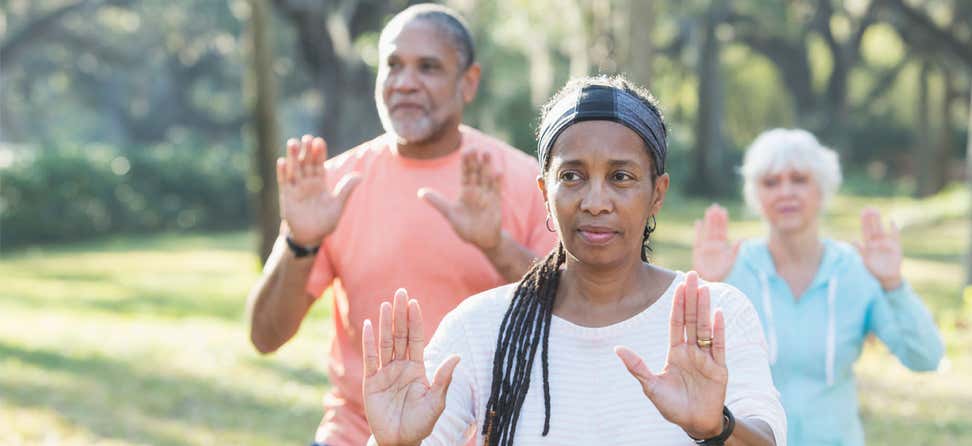Key Takeaways
Read and share guidance developed by the Administration for Community Living regarding expectations for Prevention and Public Health Fund grants.
Questions and answers address challenges related to the COVID-19 pandemic.
Find information about implementing remote programs and more.
When should we begin in-person evidence-based programs, given the COVID public health emergency?
CDSME and Falls PPHF grantees should follow state and local guidance with respect to in-person programs, including – but not limited to – any required and/or recommended safety precautions. In addition, grantees must follow any guidance from the program developer/certifying entities for the program(s) they are implementing. The Guidance for Resuming On-Site Senior Center Operations may be a useful resource as you think about safety and timing for resuming in-person programs.
None of the program(s) we proposed in our grant are available remotely. What is ACL’s expectation for PPHF CDSME and Falls Prevention Grantees with respect to program implementation?
To help older adults and adults with disabilities stay connected, provide continued access to health promotion programs, ensure grantees are working toward the goals of their project, and prepare for the realities of social distancing for the foreseeable future, all 2019 and 2020 PPHF CDSME and Falls Prevention grantees will be expected to be implementing at least one remote program within six months of the Start Date of their award, i.e., by end of January 2021. If a 2019/2020 grantee proposed only program(s) which are not available remote, they will need to add at least one program that is available for remote delivery from the pre-approved list of programs.
All 2017 and 2018 PPHF CDSME and Falls Prevention grantees will be encouraged – but not expected to – build capacity to implement remote program(s).
For the list of pre-approved programs, please see the FY2020 Integrated Networks and Community Impact CDSME and Falls Prevention Funding Opportunity Announcements. See Tracking Guidance for Health Promotion Programs, which indicates which evidence-based programs are available for remote delivery, along with other relevant information and resources.
We also suggest that grantees look into if there is any existing capacity in their area for the remote delivery of programs on the pre-approved lists. Grantees could certainly establish partnerships with organizations in their area who have remote program capacity, even if they were not included in the original grant proposal.
Can PPHF Falls Prevention grantees implement CDSME programs using their grant funds (or visa versa) and count these programs toward their grant participant/completer goals?
No. The Falls Prevention and CDSME are two distinct grant programs, so CDSME grant funds must be used for the delivery of the pre-approved CDSME programs and Falls Prevention grant funds must be used for the delivery of the preapproved Falls Prevention programs.
Can PPHF grantees deliver remote programs to participants who live outside of the target geographic area as identified in their application?
Yes. ACL encourages all grantees to focus delivery of remote programs in their target area as defined in their application, but grantees can offer remote programs to older adults and adults with disabilities outside of the target geographic area. Grantees who are thinking of offering remote programs to older adults and adults with disabilities outside their identified target area must first review and confirm the program developer’s guidance on program site expansion per licensing agreement (if applicable), and then contact their ACL Project Officer to discuss the details of the expansion and request approval.
If we build capacity for a remote program(s), can we continue to deliver program(s) even after in-person programs are possible?
As long as the program developer/certifying entity for that program(s) are still supporting remote delivery, PPHF grantees can deliver the remote program(s) until the conclusion of their ACL grant. As a part of your process of considering what remote program(s) you might implement, we suggest that you discuss with the program developer/certifying entity the extent to which program(s) might be supported for remote delivery in the long-term.
Are there opportunities to be involved in pilot projects to further research the efficacy of remote evidence-based program delivery?
We encourage grantees to connect with their NCOA technical assistance liaison at the National Falls Prevention Resource Center and program developers/certifying entities to explore opportunities to be involved in pilot testing and evaluation of these remote program modalities. With the approval of your ACL Project Officer, grantees may be allowed to amend their work plans and budgets to support activities/costs associated with remote program pilots.
I am making changes to my budget to support remote delivery costs. Do I need to submit a formal request to ACL to amend my approved budget?
Grantees can move up to 25% of their federal funds between budget categories to support allowable costs related to the program goals/objectives/activities without requesting a formal amendment from ACL, although grantees should discuss any significant budgetary/work plan changes with their ACL Project Officer.
Can I buy technology, such as laptops or hotspots, using grant funds if they are needed for the delivery of remote programs?
Yes, the purchase of necessary technology is allowed, as long as grantees adhere to federal rules governing these purchases. However, we urge grantees to develop policies and procedures governing the provision and usage of such devices and to consider issues such as whether they will be provided on loan, or permanently; how will IT support be provided; who is responsible if the device is broken, lost or stolen; will it be used only for the duration of the evidence-based program and then retrieved; etc. We encourage grantees to coordinate with existing programs such as ACL’s Assistive Technology programs, leverage Older American’s Act dollars, and/or explore other creative state and local, public and private, partnerships to procure technology. See also Frequently Asked Questions: COVID-19 and Technology Resources.
How do we make changes to our proposal work plans, such as adjusting participant/completer goals, adopting and/or changing the evidence-based programs we’ll be offering, etc.?
Changes to project work plans will be handled on a grantee-by-grantee basis, between the grantee and the ACL project officer.
Will we be expected to collect the required ACL Data Forms for remote programs?
Yes. For participants/completers to count towards your grant goals, you must collect attendance and pre and post-test data. The required data collection forms and instructions are available through the National Falls Prevention Database and National CDSME Database, respectively.










